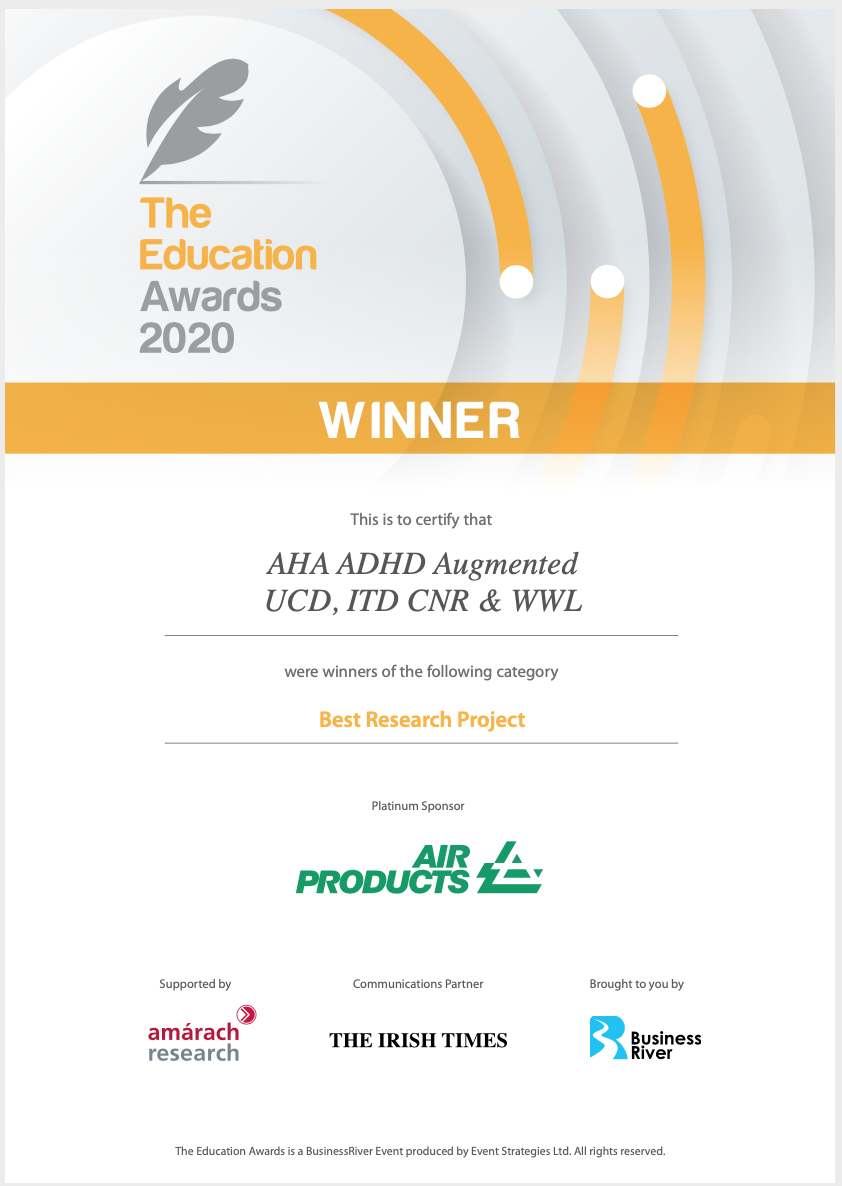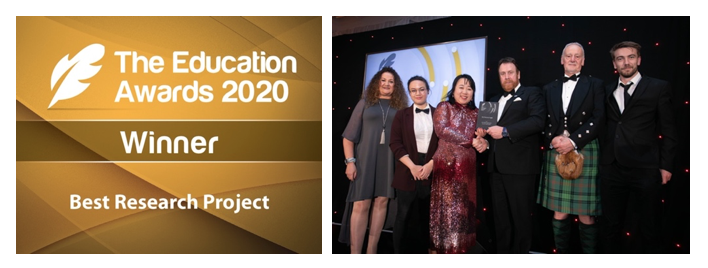We are pleased to let you know that The AHA project (aha.ucd.ie) led by Assoc. Professor Eleni Mangina from the School of Computer Science at University College Dublin, together with consortium partners Wordsworth Learning Limited (WWL) and Consiglio Nazionale Delle Ricerche (CNR), has won the Best Research Project at the Education Awards Ireland 2020.

We would like to thank the European Commission for financing this project and UCD School of Computer Science, UCD Research Office and Finance Office for their great support during the whole project journey. Thank you to all our project stakeholders: teachers, parents and students who are interested in our project. Thank you to the advisory board members: Kerry Pace (Diverse Learners), George DuPaul (Lehigh University), Andrea Bilbao (ADISS, ADHD Europe), Emma Butler (OT4Children) and Anastasia Pyrini (ICICTE) for valuable feedback and comments. We sincerely thank The Education Awards Ireland for this great honor.

The AHA pilot project, funded by the European Commission between 2017 and 2019, focused in particular on the implementation and integration of existing technologies (mobile apps, online literacy programmes, and augmented reality (AR) development) to enhance learning for students diagnosed with Attention-Deficit Hyperactivity Disorder (ADHD), to assist their parents and educators during the teaching and assessment process and to investigate whether the combination of such technologies can assist students diagnosed with ADHD to stay focused, make fewer mistakes to finish assessments at school as well as homework.
For the pilot study, a cohort 117 primary school students from Ireland were recruited to join the study with the support of HADD Ireland, a charity that works with people affected by ADHD. The students were divided into three groups, those who received no intervention (control group), those who used the WWL tool without any augmentation (WWL group), and those who used the AHA-augmented WWL tool (WWL- AR group).
The AHA project had two major hypotheses: firstly, that augmenting existing technology tools for numeracy and literacy with AR would benefit students with ADHD and a learning disorder, more than the technology tools without AR; secondly that the benefits would extend beyond academic progress to improved behaviours, enjoyment of learning and satisfaction. Based on standardised testing (NARA II, Vernon and STEN), there was a significant improvement in reading and spelling, with advances of 2 to 5 years in these skills. Moreover, qualitative feedback from teachers and parents showed that many of the students had increased motivation, enjoyment of learning and improved confidence in school.
The ARETE project is an extension of the AHA project, which is a €3.9 million research and innovation project funded by the European Commission’s H2020 programme. The aim of ARETE is to support pan-European interactive technologies efforts from both industry and academia, through multi-user interactions within AR technologies evaluated in education in both professional and private contexts.
The authoring tools used within ARETE and the provision of access of the AR content developed for the broader community of users within the EU, will increase the European innovation capacity in AR.
Through systematic application of human-centred design approaches, ARETE will deliver highly usable, useful and desirable AR technologies and contents, leading to a wider uptake and further stimulate their creative usage.
